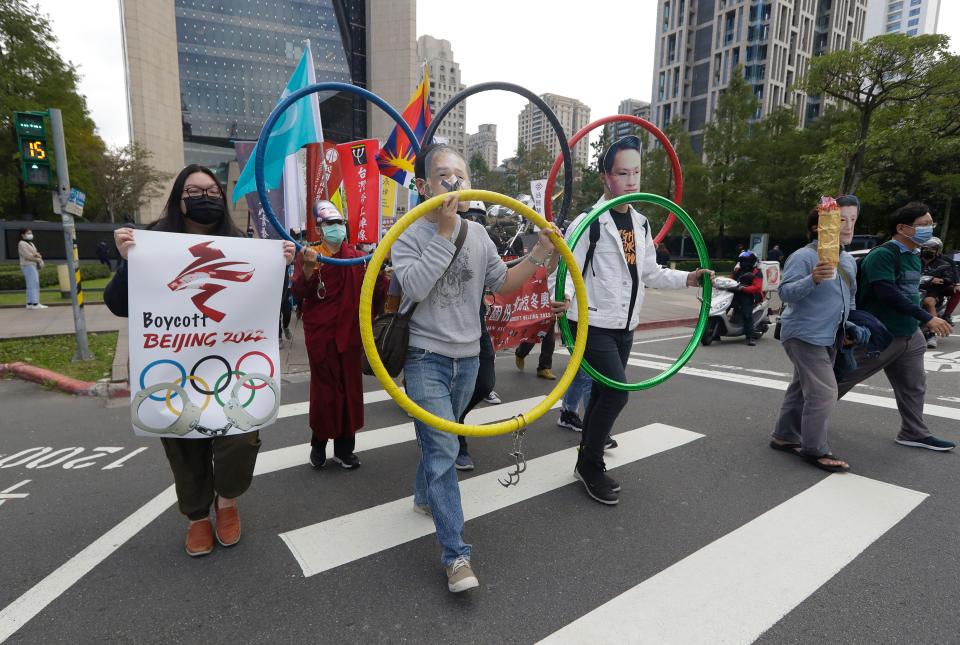Mark Schlakman: It’s Human Rights Day: Why it matters locally
Today, December 10, is Human Rights Day.
Former First Lady Eleanor Roosevelt once reflected, “Where, after all, do universal human rights begin? In small places, close to home - so close and so small that they cannot be seen on any maps of the world. Yet they are the world of the individual person…”
Not necessarily widely known, this annual observance arises out of the aftermath of WWII when the Universal Declaration of Human Rights (UDHR) was adopted by the global community with strong leadership by the United States – a milestone achievement influenced by wide-ranging legal and cultural experts from around the world. It was proclaimed by the United Nations General Assembly in Paris on December 10, 1948.

President Harry S. Truman appointed Roosevelt as principal US advocate. She chaired the UN Commission on Human Rights which was tasked with this effort. Her immediate challenge was to determine how best a world of conflicting ideologies could reach a universal understanding regarding the fundamental rights and freedoms of people everywhere.
This year marks its 75th anniversary.
The Universal Declaration of Human Rights essentially acknowledges inherent human rights to be respected without regard to nationality, race and ethnicity, where one lives, whether one identifies as religious or secular, gender identity or any other potentially distinguishing characteristics including socio-economic status.
Translated into more than 500 languages, it has inspired more than 70 human rights treaties including the International Covenant on Civil and Political Rights (ICCPR), which 173 nations including the United States (out of 193 nations currently recognized by the UN) have ratified (or acceded to) thus far.
Tallahassee Mayor John Dailey embraced this treaty framework along with Eleanor Roosevelt’s sensibilities when announcing his intent to move forward with a local human rights initiative on Human Rights Day in 2020 that would be grounded upon respect and dignity, which like so many things was impacted by COVID 19.
In April 2022, then-Leon County Commission Chair Bill Proctor advanced a resolution acknowledging the principles that underlie Universal Declaration of Human Rights. In support of his resolution the staff analysis also noted Mayor Dailey’s initiative. The resolution resulted from the chair’s meeting with Barbara Goldstein, executive director of the Holocaust Education Resource Council, which she invited me to join. The commission adopted it on its consent agenda.
Moreover, Sheriff Walt McNeil has expressed interest in exploring whether these frameworks could conceivably help support his emphasis upon ensuring that Leon County Sheriff’s Office policies and practices are informed by best practices.
The International Covenant on Civil and Political Rights’ history within the US is notably bipartisan.
President Jimmy Carter signed this international human rights treaty to commence Advice and Consent pursuant to the US Constitution.
President George H. W. Bush ultimately urged Senator Claiborne Pell, chair of the Senate Foreign Relations Committee, to advance the treaty. It had languished for several years. The Senate also added some conditions including an understanding that it would apply at the state and local levels as well as at the federal level.
At this point, it’s important to underscore that the Rule of Law is clear - nothing in this treaty, or any other treaty the US has ratified, or may ratify in the future can contravene the US Constitution.
The Senate approved the international covenantand President Bush signed the instrument of ratification - the Supremacy Clause of the US Constitution provides generally that ratified treaties are accorded the weight of federal law.
Anyway, if you’re not familiar with the Universal Declaration of Human Rights, it’s a relatively quick read, easy to search for… and seemingly an excellent way to acknowledge Human Rights Day this Sunday.
Mark Schlakman, Esq., FSU Center for the Advancement of Human Rights, and Of Counsel to Rambana & Ricci, P.L.L.C.
JOIN THE CONVERSATION
Send letters to the editor (up to 200 words) or Your Turn columns (about 500 words) to letters@tallahassee.com. Please include your address for verification purposes only, and if you send a Your Turn, also include a photo and 1-2 line bio of yourself. You can also submit anonymous Zing!s at Tallahassee.com/Zing. Submissions are published on a space-available basis. All submissions may be edited for content, clarity and length, and may also be published by any part of the USA TODAY NETWORK.
This article originally appeared on Tallahassee Democrat: Mark Schlakman: It’s Human Rights Day: Why it matters locally

